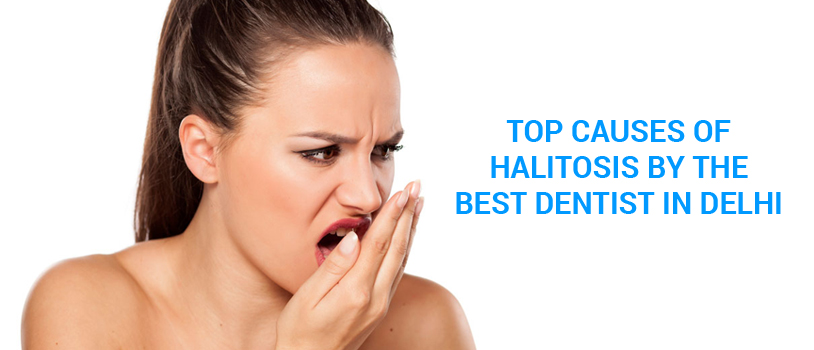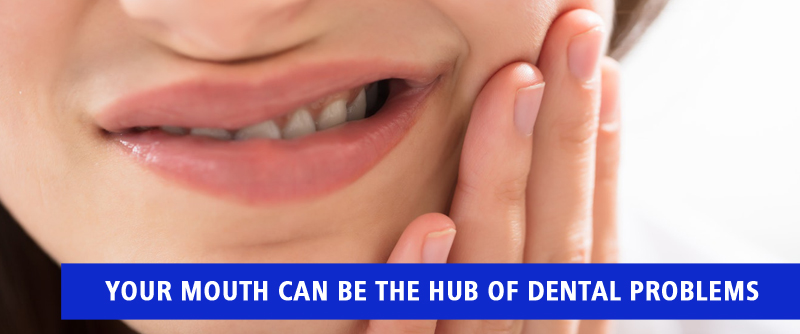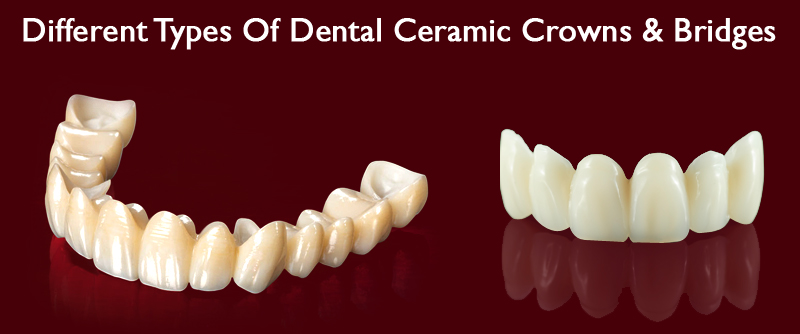Food & Drink – You think garlic & onions, don’t you? Not just onions & garlic, strongly-flavoured/ aromatic food like spicy curry, certain cheeses, fish & coffee can make your breath smell too. So can alcohol. Particles of any food though can remain in the mouth, stuck onto the surface of, or between teeth. This promotes bacterial growth, which in turn leads to bad breath. Brushing & flossing help eliminate these food particles and using an antibacterial mouth rinse fights bacteria.
Poor Oral Hygiene – As discussed in the previous point, brushing and flossing clean the teeth, gumline & tongue of food bits that can otherwise rot. Bacteria breaks this food down, resulting in strong odour. To add to it, bad dental hygiene means more plaque in your mouth. This plaque solidifies to form tartar, which in turn can cause gum disease. (Periodontal disease/ Periodontitis) Hence, persistent bad breath can be a sign of gum disease.
Smoking & Excessive Drinking – The particular odour suffered by smokers is known as ‘Smoker’s Breath’. Smoke particles stay in your lungs & throat for hours after you smoke, hence the stale stench associated with smoking. Smoking and chewing tobacco or even tobacco-based products can cause a whole lot of other oral problems too – oral cancer, gum-irritation, stained teeth and limiting the ability to taste food. Excessive drinking, on the other hand, leads to halitosis because an alcoholic’s body treats alcohol as a toxin and gets rid of some of it through the respiratory system.
Dry Mouth (Xerostomia) – Saliva washes away dead cells, food debris & bacteria from the mouth. If dead cells remain in the mouth, they decompose, causing halitosis. Experts recommend those with xerostomia to get saliva in your mouth moving, by chewing a sugarless gum or munching on an apple. Frequently sipping water or sugar-free juices is also a good idea. Breathing through the mouth is one of the causes of dry mouth.





 FSC India.
FSC India.